What is a VPN: A Complete Explanation
The rises of internet users, makes the presence of VPN more attractive. Especially by users who want to get data privacy when accessing the internet network. Then what is a VPN and also its function?
Actually VPNs have been around for a long time, it’s just that not many people use the software. Until now, VPNs still exist and are increasingly popular with the number of users who tend to increase.
In fact, almost all people in various countries use it to get a secure internet network. VPN users will also be able to access their VPN remotely.
Table of Contents
- What is a VPN?
- VPN Functions
- How do VPNs Work?
- Common VPN Types
- VPN Security Method
- Benefits of Using a VPN
- Disadvantages of Using a VPN
- Conclusion
What is a VPN?
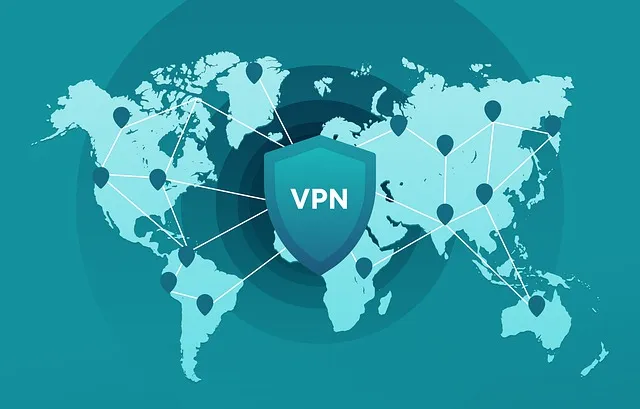
VPN itself stands for Virtual Private Network which serves to provide services in the form of internet access to websites in a private and more secure manner. VPN security can be guaranteed, because it can change the connection path that passes through the server while hiding any data exchange that is accessed by VPN users.
VPN is a connection service that is able to provide access to a site, where all data will be encrypted so that browsing becomes more private and secure. It can be said, VPN is one type of computer network that is commonly used by the public.
A VPN is a method used to add security and privacy to private and public networks, such as WiFi Hotspots and the Internet. In general, VPN is the type of connection service that is most often used by companies to protect sensitive data.
Read: 15 Best VPNs For Safer Internet
However, now the use of private VPNs is gaining popularity as more interactions require the user to be face-to-face with the Internet. VPN is a connection service that can increase privacy because the user’s initial IP (Internet Protocol) address is replaced with another IP provided by the VPN provider.
Users can obtain IP addresses from any gateway area provided by the VPN provider. For example, you live in Jakarta. But with a VPN, it’s as if you live in Malang, Surabaya, or a number of other cities or countries.
VPN Functions
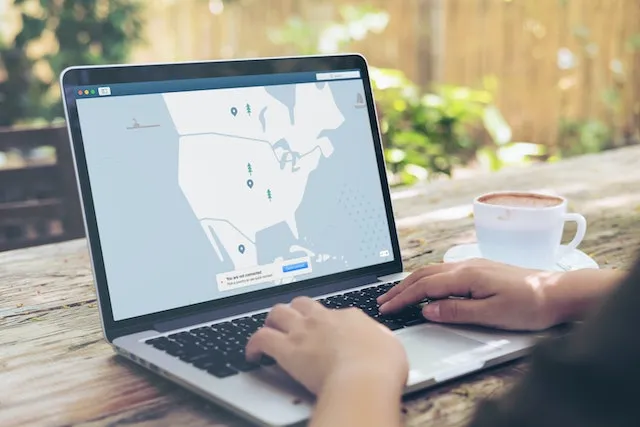
After knowing what a VPN is, you also need to know what a VPN does for users. For your information, here are some of the main functions that a VPN has:
1. Secure Data Encryption
The first function of a VPN is to secure data encryption. When using a VPN, usually the one you use will be secured or encrypted.
In short, encryption is the process of disguising data into random numbers and letters so that it is not easily readable directly. Usually to read encrypted data must involve certain parties.
2. Transfer Data Safely
Internet usage is not only used for browsing. However, it has also been widely used for data transfer. Even recently, the process of transferring data on the internet tends to increase along with the development of the digital world.
Read: What is Network Security: Types and Functions
The next function of a VPN is to securely transfer important data from the corporate network. The way a VPN works to transfer data is by connecting the service to a private server using encryption methods to reduce the risk of data leakage
3. Reduce Connection Interference
The next function that a VPN has is to reduce connection interference. Because VPN is a private network, so that no one else can use the network thereby reducing the risk of trouble on the connection.
4. Disguise User Location
A VPN can also function as a proxy on the internet. So that demographic data from other countries cannot be found. This means that every VPN user’s data including its location remains hidden. Thus user privacy will be maximized.
5. Used To Access Regional Content
You can also use a VPN to access regional content. When using a VPN you can set your location in different regions to access regional content in those areas. For example, Netflix provides different TV series and movies according to each country.
How do VPNs Work?
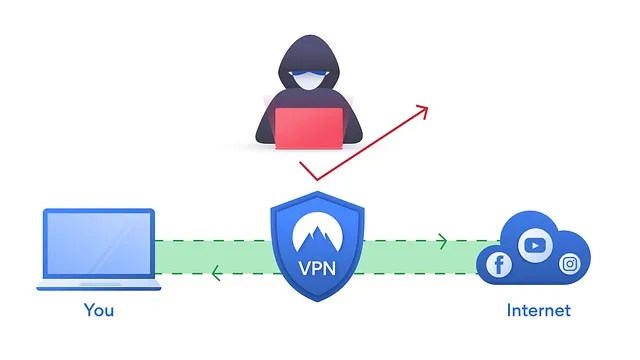
After knowing what a VPN is, you also need to know about how the software works. The goal is to be able to understand the definition of VPN in more detail and also complete.
When you start the VPN client software from a VPN provider, the software will encrypt your data even before your ISP (Internet Service Provider) or WiFi detects it.
The data is then forwarded to the VPN, and from the VPN server it is then forwarded to your online destination. Online destinations assume that your data comes from the VPN server as well as its location, and not from the actual device or location.
Read: What is Firewall: Definition, Types, and Functions
The destination site will see the VPN server as the traffic origin, and not from the device you are using. No one can easily identify you or the computer you use as a data source, or what you do. For example, related to what website data you visit, what data you transfer, and so on.
Your data is encrypted, so even if someone can see what you send, they can only see the encrypted information and not the raw data. When you use a VPN, every data exchange will be passed through the VPN Server first to get encryption.
Common VPN Types
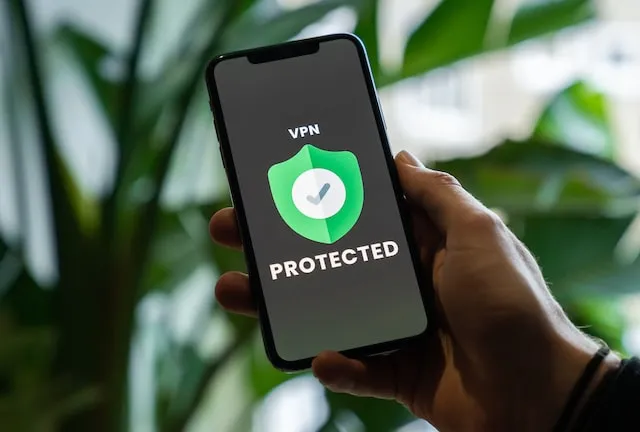
In general, there are several types of VPNs that are commonly found in the use of data transfer. For information, here are some of these types of VPNs that you need to know:
1. SSL VPN
One of the most common types of VPNs used in data exchange is SSL VPN. Please note that SSL-VPN is usually implemented through a hardware box. The requirement to use this type of VPN is that the browser must have HTML-5 capabilities.
2. Site-to-Site VPN
The next type of VPN is Site-to-Site VPN. This type of VPN is generally owned and needed by companies to secure the data they have. Each has its own local area network (LAN) which is usually connected to a wide area network (WAN).
3. Client-to-server VPN
The next type of VPN is a client-to-server VPN. In short, client to server VPN is a VPN that serves to connect with clients from anywhere. This type of work or process involves the user connecting directly to the VPN provider.
VPN Security Method
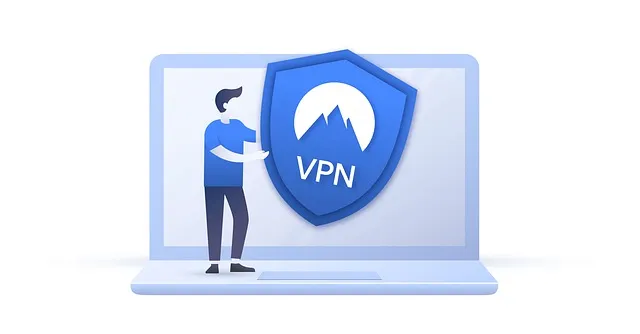
Now you know what a VPN is all about. In general, the function of a VPN is to protect the privacy and data of the users. But in addition to these functions, VPNs also provide users with various security methods.
Some of the security methods on a VPN that can be used include the following:
1. Firewall
VPN provides Firewall security methods to secure connections and data exchange between users. The firewall has a barrier between the local network and the internet. In the firewall there are also which ports are allowed to be opened, and what protocols are allowed.
2. Encryption Method
Encryption is the most common method and is widely used in the process of securing data. The way this encryption works is that information will be scrambled so that it is difficult for others to read. This will result in the data contained in it not being easily broken into or accessed by irresponsible people.
3. IPSec
VPN also provides a security method in the form of IPSec. In short, IPSec is a security method that provides better security features than others. Like, a better and more comprehensive encryption algorithm.
4. Data Integrity
In the VPN security method, data integrity is every data packet that is passed on a public network, where a data integrity guarantor is needed. The existence of data integrity will ensure that the data transferred does not change and the level of data validity remains valid.
Benefits of Using a VPN
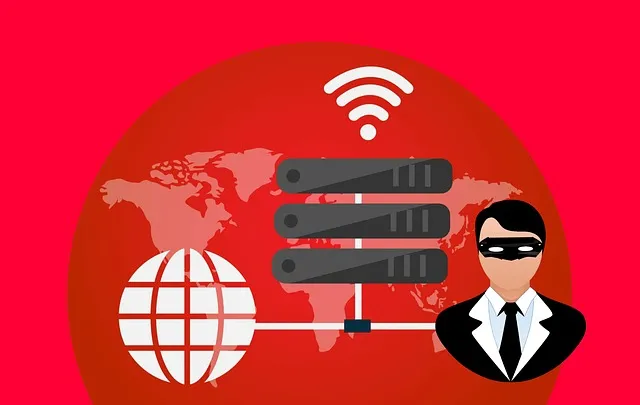
The rapid development of the digital world makes the process of communication and data transfer also increase. Therefore, security becomes very important and is the most requested by companies. The need to send encrypted data over the network is also increasing.
Of course, there are many advantages to using the following virtual private network. For your information, here are some of the benefits that you can get when you use a VPN connection:
1. Helps Hide Your Online Identity
One of the uses of a VPN is to help hide the online identity of its users. Since a VPN is a connection service and can hide your IP address and encrypt your online traffic, your digital footprints will not be traceable on the Internet. Hackers will find it difficult to use your real IP address to find out personal information.
Read: What is a Proxy Server: Definition, Types, and Benefits
Apart from helping you avoid surveillance from other users, a VPN can also help protect your privacy from advertisers. Because VPNs leave no traces, advertisers will have a hard time finding your search history and interests on the internet.
2. Securing Internet Users’ Online Connections
WiFi is a public service that is very convenient to use, especially if you have a limited cellular data plan. However, one of the problems with free WiFi is that it is less secure. So that your personal data and privacy can be quite threatened when using this connection.
To overcome this, you can just use a VPN. If you use a VPN, then you don’t have to worry about such dangers. Why? Because VPNs are equipped with encryption features that are useful for securing online communications and effectively ensuring that no one can monitor them.
3. Prevent Bandwidth Slowdown
The next benefit that can be obtained from using a VPN is to prevent bandwidth throttling or bandwidth throttling. Bandwidth throttling is an event where the ISP you are using limits the amount of bandwidth capacity and effectively lowers the connection speed when the bandwidth access quota has been reached.
Usually, ISPs do that to improve their service by removing network congestion and ensuring there is sufficient bandwidth for all users. A VPN is a connection service that can encrypt all Internet traffic so that your ISP won’t be able to see your online activity. In addition, they will also not know how much bandwidth you have used.
4. Can Be Used As By Pass
In certain conditions, you may have limited access to a site when you are in a certain country. For example, say you are in country A and that country blocks site A in that country. Thus, you cannot access the content while in the country in question.
Read: Peer to Peer Networks: Complete Introduction
When you move countries, your network is known as a network originating from country B, then you will be allowed to access website A. This is known as By Pass internet. When using a VPN, you can have a server location that will be used to access a particular site.
So you can just access certain sites or content that is limited by certain regions. This will then make it easier for internet users to be able to get complete access to certain information.
Disadvantages of Using a VPN
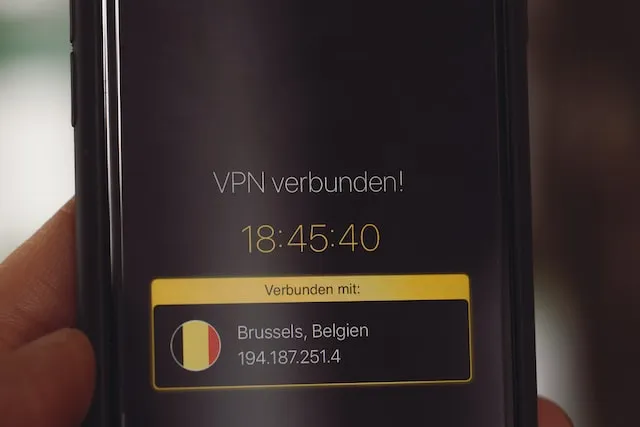
Although it offers quite a lot of advantages, the use of a VPN is also not without its drawbacks. For your information, here are some drawbacks to consider when you want to use a VPN.
1. Not All Devices Already Support VPN
One of the downsides of using a VPN that you need to be aware of is its compatibility. Because not all devices will directly support the use of VPN on these devices. VPN services generally work on popular platforms like Windows, iOS, macOS, and Android.
However, there are devices like Linux, Chromebooks, and Boxee Boxes that don’t really support VPN apps. So you have to manually set up a VPN connection on the device or operating system you want to use.
2. Expensive VPN Prices
In general, VPN consists of two main versions namely free VPN and Premium or paid VPN. Free VPNs generally have limited features and are also not a reliable option for securing network connections.
Therefore, to get more complete features and maximum security, you need to use a paid VPN. In addition to more complete features, generally paid VPNs are also more secure and provide more server choices.
However, to get a high-quality VPN, the price is relatively expensive. So that this option is sometimes a burden for users who have a relatively minimal or limited budget.
3. Choosing the Wrong VPN Can Be Dangerous
When you choose the wrong VPN, it can be a pretty dangerous condition. A fake VPN usually has functions and features that are too unreliable so that the security of online data can be quite threatened.
Read: 17 Best Free Web Proxies 2022, Safe and Advanced
In some cases, there are types of VPNs that keep logs of the online activity you use. This of course can seriously endanger the privacy of the data you have. Because the activity log will usually be stored for a certain period of time by the VPN provider.
Conclusion
Virtual Private Network (VPN) is now increasingly being used for data transfer security needs. Because VPNs offer encryption functions that are strong enough so that user data cannot be accessed by others easily.
There are many VPNs that can be used on the internet. Each VPN certainly offers different features and functions. So you can choose the type of VPN that best suits your needs for data transfer.
Thus a complete discussion of what is a VPN, starting from its understanding, types, functions, and also how it works. After reading the article, I hope you can understand VPN in more detail and in detail to secure data connections on the internet.
